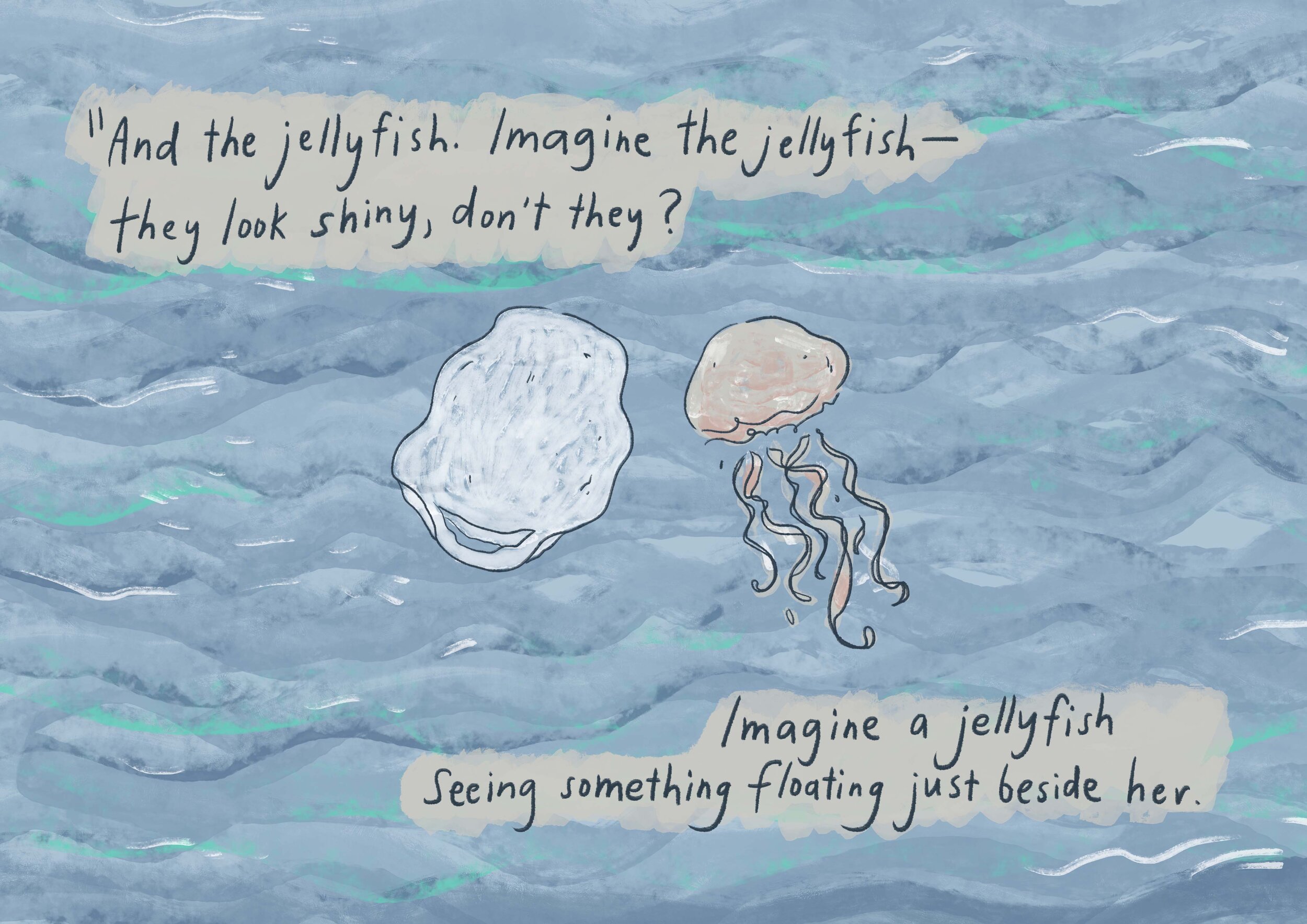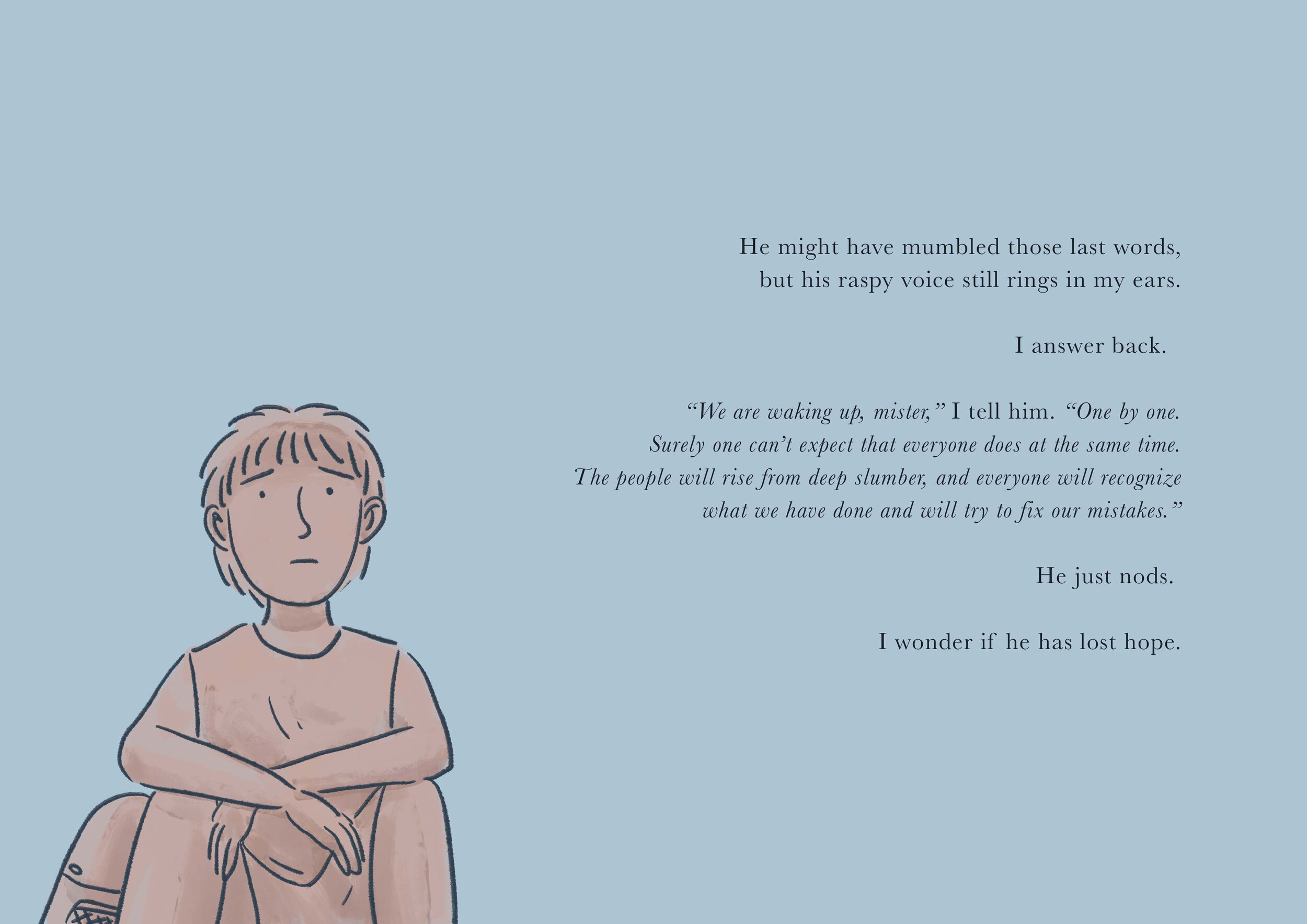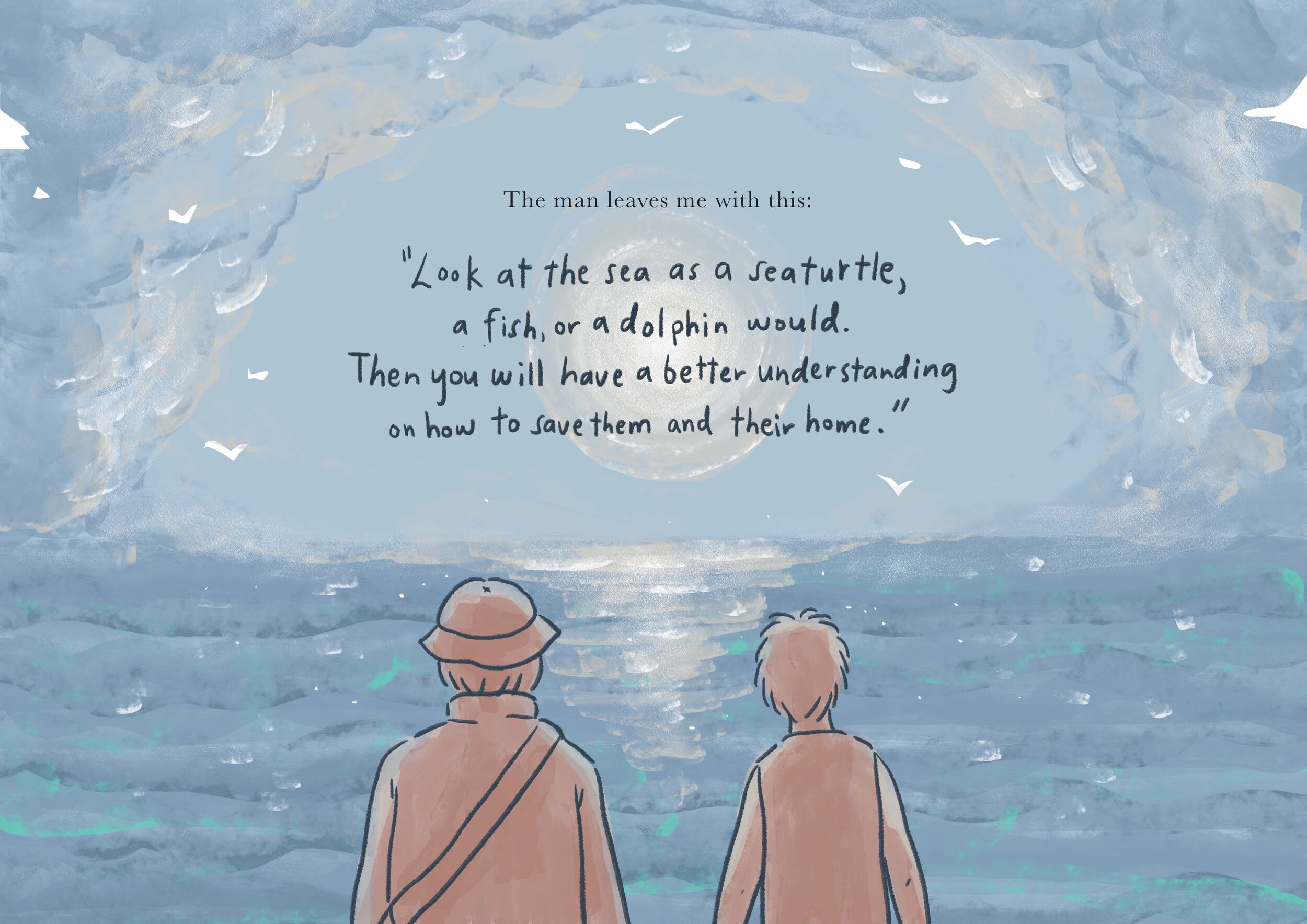Tiny Tutubi Story III: The Man’s Last Plastic Bottle
Written and illustrated by Arli Pagaduan, edited by KB Meniado, released September 2021
The man I’m sitting with carries a plastic bottle with him everywhere he goes.
He says it helps remind him of his choices and the consequences.
I don’t recall how The Man’s Last Plastic Bottle was conceived, but I think I can trace it to a time I may have been staring into space, and my eyes landed on an empty plastic bottle. I gazed at it for a long time, and I noticed how distorted the image below it was.
And then the thought of an old and young man came to mind.
My family, friends, and I used to frequent Boardwalk before in Subic Bay Freeport Zone. I have plenty of memories just sitting on the sand there or walking along the shore while looking at the waves.
My hometown is surrounded by Subic Bay. The Philippines is an archipelago. We are surrounded by water, and we depend on it for life, food, livelihood, tourism, and let’s not forget how the oceans and seas absorb carbon dioxide and transfers heat around the globe.
And of course, besides us human beings, there’s the magnificent marine life on the surface and underwater. Plastic bags, single-use plastics like straws, and decades-old sachets increasing in number more than the fish in the sea is an alarming thought.
I imagine the young and old man in a conversation, and it takes place at a beach in Subic Bay. They talk about man’s careless choices of leaving trash wherever he wants to. This then travels to the ocean, affecting the dolphins, fish, corals, sea turtles, and others in their habitat.
The old man realizes the shortcomings that he and his generation made and the mindful actions they could have done, while the young man represents the present generation who’s already aware about what’s been happening. They understand that it is not an isolated issue but one that calls for an integrated approach from all kinds of people to protect marine life and ecosystems, as well as ensuring a sustainable source of livelihood for fisherfolk.
The story ends with another empty plastic bottle from the sea, and in it is a sad whale song.
‘The ocean’s cry for help.’
It’s the last straw—an expression that tells someone is at their limit.
It’s the last plastic bottle—a mindset that the young man wants to apply, so he can an proactive protector of the seas, its creatures, the people whose jobs depend on it, and all of us human beings.
We are the young man.
And we’re holding on to our last plastic bottle.
























